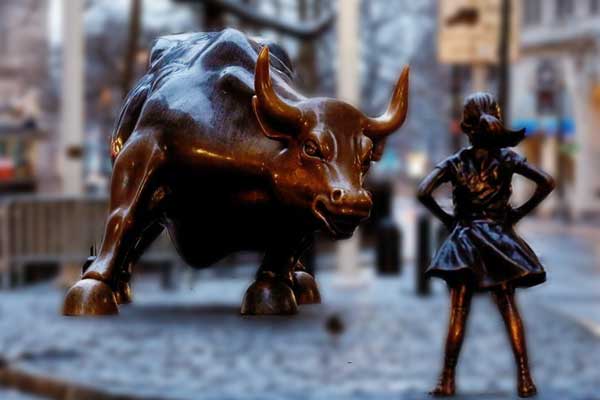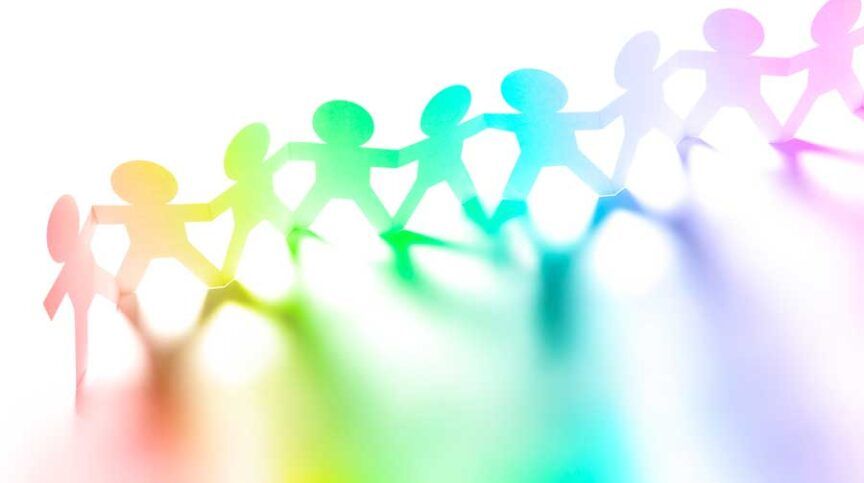In an article in the journal Frontiers in Political Science, “Moral Collapse and State Failure: A View From the Past,” the authors look at four premodern states that prospered and endured based on good governance. That included leadership that was held accountable with mechanisms in place to punish those leaders who privately benefited from state resources by enriching themselves through taking advantage of their leadership position, equitable taxation, a mutual moral pledge between leaders and citizens, and a commitment to the common good. Also important was the willingness of the leaders to listen to the voices of the people. The authors also examine the decline pattern of these states, evident once they abandoned their adherence to principles of “state-building.”
The four premodern states, according to the authors, employed “practices and policies of good government similar to modern democracies.” They write, “Good government, past or present, is premised on checks on power, a distribution of voice, ways to police corruption, equitable fiscal financing of the state, limits on greed, and leadership dedicated to public service.”
The authors detail how one of these premodern states exemplifies the importance of support for the public good. The authors write, “The state also provided public goods…including transportation infrastructure and water control, maintenance of public order, food security, public street lighting, a public health office, poor relief, and public education. ”Social cohesion resulted from good governance and commitment to the core principles of state-building.
Regarding the decline of these once well-functioning states, the authors write: “While causes of decline were varied, we describe and comment on four well-documented examples in which primary causality can be traced to a principal leadership that inexplicably abandoned core principles of state-building that were foundational to these polities, while also ignoring their expected roles as effective leaders and moral exemplars.” As corruption spread amongst the rulers and ruling class, citizens lost trust in the leadership and in the institutions.
A viable state requires mutuality of vision and cooperation among its people and between the people and leadership of the state for it to function well and to endure. A social contract exists in which citizens agree to respect and abide by the authority of the state and the rulers pledge to protect the social order and the rights of the citizens, to provide benefits to the people, and to guard against the corrupting influences of their own status and positions of power. By limiting unfettered greed in general, the state ensures that the welfare of the people as a whole, the common good, is protected.
Competition for Survival and Resources
Healthy societies must have a balance between cooperation and competition. In nature, all living things compete to survive, contending, often to the death, for food, water, and mating opportunities. In human society, individuals also compete for resources of survival as well as resources of privilege such as wealth, prestige, and power. In market-oriented economies, theorists tell us, competition is necessary for innovation, to achieve greater efficiency, for the development of new products and services, and so on.
Imagine, though, a society where competition for survival and resources is endorsed as the natural state of humanity, a world in which the buying and selling of goods and services is looked upon as the transactional core of human relations, the locus of freedom and choice. In this imagined world, competition is king, and the greatest venue of competition is where the buying and selling of goods and services takes place – the marketplace. And, it is said, untouched, unregulated market forces make everything right. “Right” being that those who succeed in this world are those who are innovative, efficient, and highly competitive and, therefore, the winners. And winners take all. Those who struggle or fall short are simply losers.
In this world of inequality, those who find their good fortune are seen and see themselves as deserving of their wealth and privilege. Those who are born into poverty, have access only to unfunded, deteriorating schools, who work for a wage that affords only the barest survival goods and services — these inequalities are part of the nature of things. Anyone who suffers any sort of misfortune deserves those circumstances because of laziness or non-competitiveness. This is a dog-eat-dog world in which individuals compete to win at any cost. If you lose your job or get sick and can’t afford health insurance, too bad — this is survival of the fittest.
It conforms closely to the ideology of social Darwinism which sees the inequalities among humans as part of nature, and the resulting class stratification as proper. Britannica explains that for the social Darwinists of the late 19th century and early 20th century, “The poor were the ‘unfit’ and should not be aided; in the struggle for existence, wealth was a sign of success. ”All perks and privileges go to the winners. Austerity is for everyone else. The inequality of it all is not something to be fixed or regulated or narrowed by social services.
This is the world envisioned and created by neoliberalism. This is the world we are living in. Yet, there is growing recognition among politicians and even capitalist elites that the current system has to change. Pete Buttigieg, former presidential candidate, stated, “neo-liberalism is the political–economic consensus that has governed the last 40 years of policy in the U.S. and U.K. Its failure helped to produce the Trump moment. Now we have to replace it with something better.”
The Failure of Neoliberalism
Neoliberalism, as economic policy, has failed in all aspects of good governance and state-building, as described in the premodern states in the article cited above. Leaders do not serve the public good when they are beholden to wealthy donors. Couple that with Supreme Court decisions that have weakened campaign finance rules and paved the way for big money to be spent in unlimited amounts through Super PACS, thus influencing elections — the fix is in. The rich and the powerful have an outsized voice and the regular citizen has little to none. We are seeing a great number of American citizens with a high degree of distrust in our political leaders and in our national institutions. It is easy to blame the politicians. It is even easier to blame Trump. But some point out that Trump was more of a symptom than a cause. We must demand of ourselves and our leaders a moral commitment in speech and action. We must demand of our political parties that they offer candidates who are committed to serving and guarding the common good rather than the selfish interests of their wealthy donors. They have to make sure that the voices of the people, of all people including the poor and the working class, are heard. They have to engender social cohesion, not division.
Chris Hedges, a Pulitzer Prize-winning journalist, has said that “fascist movements build their base not from the politically active but the politically inactive, the ‘losers’ who feel, often correctly, they have no voice or role to play in the political establishment. ”A telling statement, attributed to various people of recent history, warns us of what could be happening today: “When fascism comes to America, it will be called anti-fascism.” So many worried that Trump was the harbinger of fascism. But sometimes the confluence of events can open the door to dangerous unfoldment. Trump and Republicans certainly did much to contribute to the tensions and animosity that has grown to monstrous proportions today. But so have liberals contributed to the divide. Political correctness and its weapon, cancel culture, fuels division. So does identity politics as it creates factionalism and a competition of grievances. In such a political climate dangerous trends can go unnoticed.
… Part 2 coming soon.





